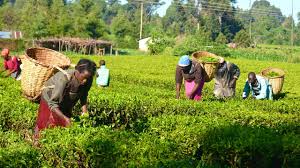Agriculture plays a crucial role in Nigeria’s economic growth and development due to its significant influence on the economy. However, productivity is hampered by several factors, including environmental challenges, inconsistent government policies, low capital for production, lack of infrastructure in rural areas, socio-economic factors. like inefficient supply and high costs of inputs, poor organization (especially program duplication), institutional challenges, low rural remuneration, rural depopulation, and inadequate storage facilities. Inconsistent policies, often stemming from political or administrative issues, further compound the risk and uncertainty inherent in agricultural planning.
Development of an Efficient Information System for Agriculture
An efficient and effective information system is needed to facilitate agricultural planning, sound management, and the implementation of policies. Data collection on agriculture should be the responsibility of a specialized unit within the Federal and State Ministries of Agriculture.
The Federal Office of Statistics should collaborate with these ministries to create a robust database for agricultural planning. Research institutes and universities should serve as reliable sources of agricultural data.
Read Also: Bombay Cat Breed Description and Complete Care Guide
Restoration of Agricultural Subsidies

Agriculture is a gradual and cumulative process, and its effective management depends heavily on the availability of essential inputs and distribution.
Productive agriculture thrives on the provision of incentives, especially subsidies. Removing subsidies has caused more harm than good to agriculture, and there is a strong need to restore subsidies on critical inputs such as fertilizers.
Enhancing Research Extension and Farmer Linkages
The efficiency of government in managing agricultural resources is critical. Indirect government support, through agencies such as the National Agricultural Land Development Agency (NALDA) and Agricultural Development Programmes (ADPs), should be prioritized over direct government intervention.
Collaboration with international organizations like the World Food Organisation, FAO, and the World Bank should also be promoted. Strong linkages between farmers and research institutions are essential, not only to ensure that research findings are transferred to farmers but also to understand the needs of farmers.
Improvement of Rural Property Rights for Agricultural Productivity

The property rights system governing land ownership and use is a critical factor in agricultural productivity. The Land Use Act of 1978, as it stands, does not benefit the average Nigerian land user, apart from the State. A reasonable land-use reform, familiar to the people and supportive of local farming systems, should be instituted to improve the effectiveness of the Act.
Repositioning Agriculture through Export Revitalization
There is a need for the Federal Government to encourage investment in agriculture, focusing on both large- and small-scale farmers, with greater emphasis on small-scale operations.
More incentives should be provided to increase food production for domestic consumption and to promote the rehabilitation of economic trees, thus reducing the need to import products for which Nigeria has abundant resources.
The government should provide more support to private sector agriculturists, encouraging bold investments to improve the current state of agriculture.
Institutions supporting agricultural exports should be made accessible to current and potential agricultural exporters, and the government should put in place policies that promote the interests of Nigerian agricultural exporters at international forums.
Consistency in Government Agricultural Policies
Over the past decades, government agricultural policies have been largely inconsistent and subject to frequent changes. To ensure sustainable agricultural production and economic growth, it is essential to implement efficient, consistent, and practicable policies.
Provision of Infrastructural Facilities in Rural Areas
Agricultural production in rural communities is hindered by inadequate infrastructure. It is vital to provide accessible roads to facilitate the inward flow of agricultural inputs and the outward flow of farm produce.
Additionally, the provision of electricity will improve communication, access to energy for farm operations, socio-economic development, and rural education. This will help curb rural-urban migration by retaining productive youth in rural areas.
Read Also: Bombay Cat Breed Description and Complete Care Guide
Ensuring the Efficient Supply of Agricultural Inputs

Erratic supply and lack of access to agricultural inputs are major factors limiting agricultural productivity in Nigeria. Ensuring that farmers have prompt and easy access to key inputs such as fertilizers, seeds, and implements is crucial for timely land preparation, planting, and crop management.
A reliable supply of agrochemicals will protect crops and livestock from diseases, ensuring high-quality output. Additionally, efforts should be made to prevent the distribution of adulterated agrochemicals, particularly pesticides.
Establishment of Modern Storage Facilities for Agricultural Produce
The introduction of modern storage facilities, including refrigerated storage and cold rooms, will significantly reduce post-harvest losses, particularly for perishable crops. These facilities are essential for maintaining the freshness and marketability of farm produce, thus improving overall agricultural productivity and profitability.
Do you have any questions, suggestions, or contributions? If so, please feel free to use the comment box below to share your thoughts. We also encourage you to kindly share this information with others who might benefit from it. Since we can’t reach everyone at once, we truly appreciate your help in spreading the word. Thank you so much for your support and for sharing!

